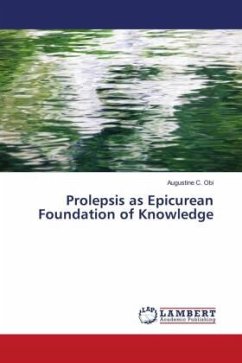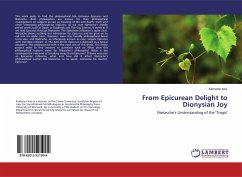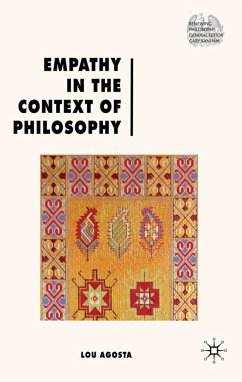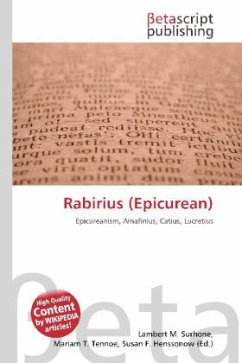
Prolepsis as Epicurean Foundation of Knowledge
Versandkostenfrei!
Versandfertig in 6-10 Tagen
29,99 €
inkl. MwSt.

PAYBACK Punkte
15 °P sammeln!
Prolepsis as Epicurean foundation of knowledge is an attempt to investigate the nature of prolepsis as articulated and employed by Epicurus. The aim of this investigation is to assess the validity of prolepsis as foundation for Epicurus' theory of knowledge. The task of this inquiry takes into account the peculiar circumstances surrounding Epicurus as a philosopher because many of his works were burnt except a handful including some personal letters and his contributions to philosophy have been misconstrued by his colleagues and misrepresented by contemporary authors and commentators. This wor...
Prolepsis as Epicurean foundation of knowledge is an attempt to investigate the nature of prolepsis as articulated and employed by Epicurus. The aim of this investigation is to assess the validity of prolepsis as foundation for Epicurus' theory of knowledge. The task of this inquiry takes into account the peculiar circumstances surrounding Epicurus as a philosopher because many of his works were burnt except a handful including some personal letters and his contributions to philosophy have been misconstrued by his colleagues and misrepresented by contemporary authors and commentators. This work utilizes what can be gleaned from the extant works of Epicurus and other sources both Stoic and Epicurean to execute its objective. Prolepsis as employed by Epicurus is not a concept in the mind that corresponds to its proper object in the realm of experience but rather a disposition of the mind produced through sense impressions that impinge upon it from the outside with which the mind organizes subsequent experiences. Prolepsis remains nonrepresentational because it does not admit the activity of logos in its formation.












